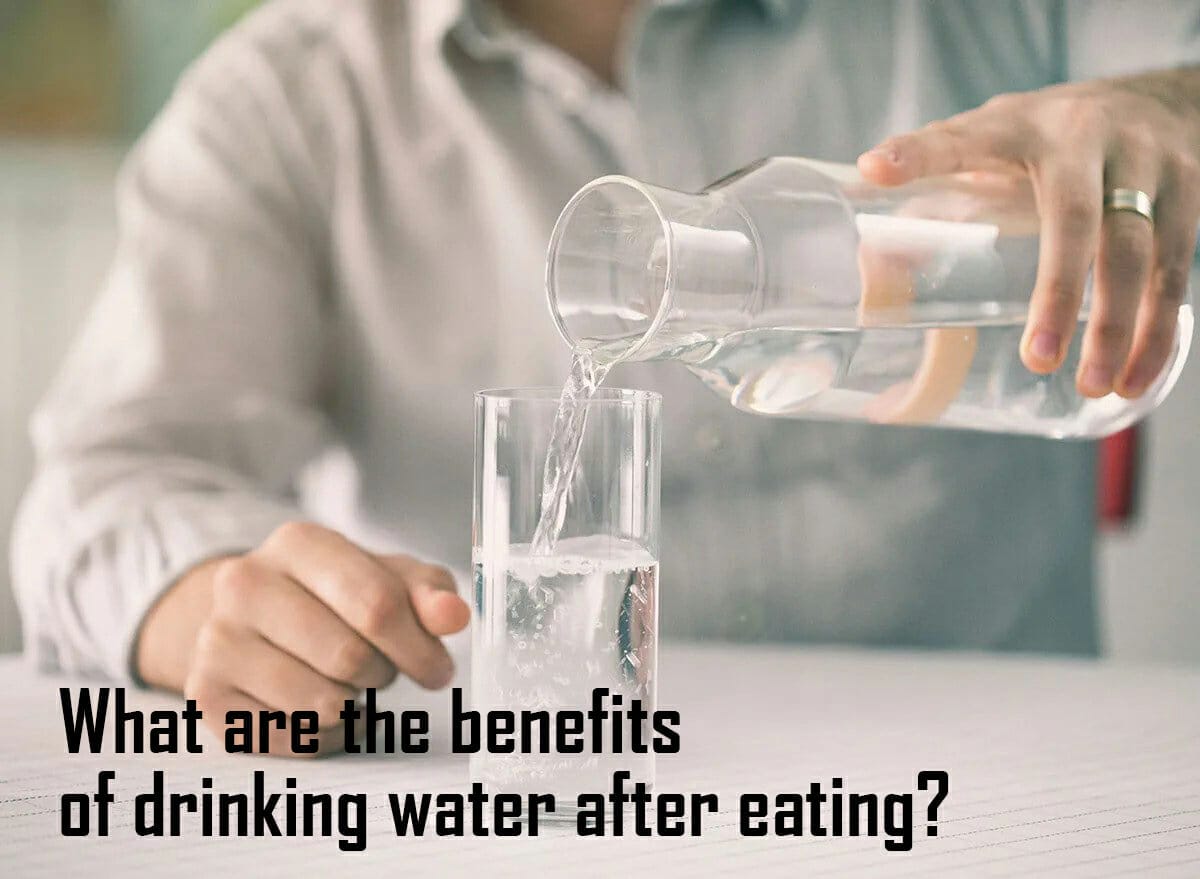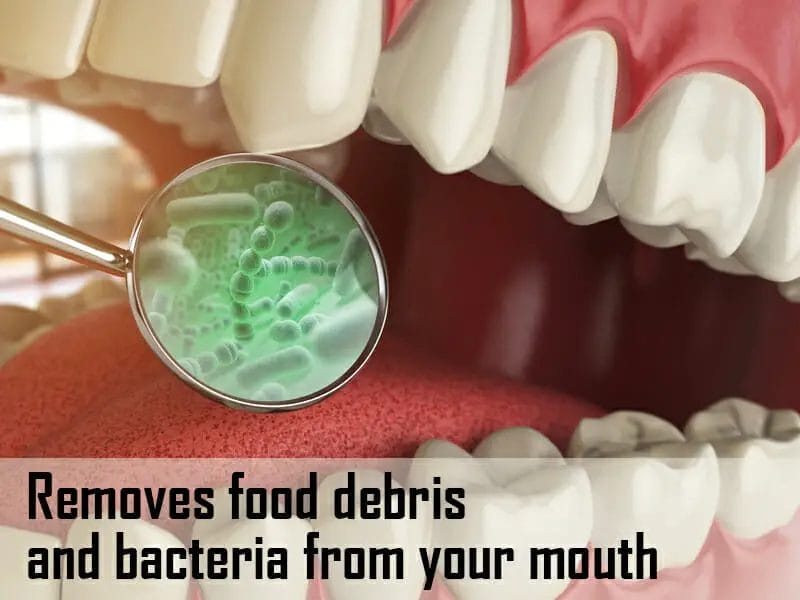The relationship between food and hydration is a topic of widespread curiosity and concern. We’ve all heard various pieces of advice about the timing of water consumption about meals—some suggesting waiting a certain amount of time before or after eating. In this discussion, we’ll explore the common question: How long should you wait to drink water after eating?
It is highly recommended to wait at least an hour after consuming a meal before drinking water. This ensures that your body can effectively absorb the nutrients from your food. Moreover, it is advised to drink a glass of water before taking a bath, as it can aid in lowering your blood pressure.
We’ll delve into the potential impacts on digestion, nutrient absorption, and overall well-being to uncover the facts behind this widely debated practice. Understanding the nuances of when and how to hydrate in relation to meals can contribute to making informed choices that support both our hydration and nutritional needs.
Why You Shouldn’t Drink Water Immediately After Meals?

The notion of refraining from drinking water immediately after meals has garnered attention due to various beliefs about its potential effects on digestion and nutrient absorption. While no concrete scientific consensus universally supports this practice, some individuals and cultural traditions suggest waiting a certain period after eating before drinking water. Here are a few reasons often cited for why one might consider avoiding water immediately after meals:
- Digestive Enzyme Concentration: Some proponents of waiting to drink water after meals claim that consuming water can dilute the concentration of digestive enzymes in the stomach. These enzymes are essential for breaking down food, and it’s believed that drinking water immediately after eating might hinder their effectiveness.
- Temperature Impact: Certain traditions caution against consuming cold beverages, including water, alongside warm or hot meals. The concern is that the temperature difference could potentially affect the process of digestion, although the extent of this impact is not well-established.
- Nutrient Absorption: It’s sometimes suggested that drinking water right after meals might dilute the gastric juices and potentially impede the absorption of nutrients from the food. However, the body’s digestive system is adept at regulating fluid levels and ensuring efficient nutrient uptake.
- Bloating and Discomfort: Some individuals report feelings of bloating or discomfort when drinking water immediately after a meal. This could be due to the body adjusting to fluid volume changes and digestion processes.
- Cultural and Traditional Practices: In certain cultures, consuming water with meals is discouraged based on long-standing practices passed down through generations.
While some individuals might find that the timing of water consumption influences their digestive comfort, there is no one-size-fits-all answer. People should listen to their bodies and make choices that feel best for them. Staying hydrated throughout the day is important, and drinking water when thirsty remains a primary guideline. As with many dietary practices, individual preferences, cultural beliefs, and personal experiences play a significant role in determining what works best for each person. If there are concerns about digestion or overall well-being, consulting a healthcare professional can provide personalized guidance.
When is the best time to drink water?
| Time of Day | Context | Recommended Water Intake |
|---|---|---|
| Upon Waking Up | Kickstart metabolism, rehydrate | 1 glass (8 oz or more) |
| Before Meals | Listen to the body’s signals | 1 glass (8 oz) |
| Between Meals | Maintain hydration without interfering | Sip water throughout the day |
| During Physical Activity | Hydrate during exercise | As needed based on activity level |
| When Thirsty | Increase the frequency of water intake | Drink when thirsty |
| In Hot Weather | Prevent dehydration in high temperatures | Increase frequency of water intake |
| When Fatigued | Combat tiredness caused by dehydration | 1 glass (8 oz or more) |
| Before Bed | Prevent nighttime dehydration | Small glass, avoid excessive intake |
| While Sick | Counteract fluid loss due to illness | Increased water intake as needed |
These guidelines are general recommendations, and individual needs can vary based on age, weight, activity level, and health conditions. Developing a water-drinking routine that suits your specific requirements and maintains a healthy hydration level is important.
What are the benefits of drinking water after eating?

Several health benefits can be gained from drinking water after eating. Drinking water after a meal helps hydrate the body and flush out toxins. It also helps keep the stomach empty, reducing hunger pangs and cravings.
In addition, drinking water before and during exercise helps to prevent dehydration and heatstroke. Additionally, staying hydrated throughout the day will prevent you from feeling thirsty and tired in the evening.
Removes food debris and bacteria from your mouth

After eating, removing any food debris and bacteria from your mouth is important. This can be done by swishing water in your mouth for 1-2 minutes or using a toothbrush and toothpaste.
Helps to cleanse your palate
Water is an important part of a healthy diet. Although, after eating, it is important to cleanse your palate immediately after eating, drinking water removes any food residue on your tongue and palate. This will help to improve your overall digestion and overall health.
Helps to reduce bloating and water retention
Getting enough water in your diet reduces water retention and bloating. Drinking water after eating can reduce the amount of food in your stomach and intestines, which can help you lose weight.
In addition, drinking plenty of water throughout the day can help to keep your body hydrated, preventing fatigue and promoting good health overall.
Help to reduce the amount of food that is consumed
Water is a great way to help reduce the amount of food consumed. After eating, drink plenty of water to help flush the food down and prevent overeating. In addition to helping with weight loss, this will also help to reduce the risk of obesity and other health problems.
What are the Risks of Not Drinking Water After Eating?
Not drinking water after eating can lead to the following problems:
Dehydration: Your body will divert water from other important bodily functions to rehydrate. This can lead to several health problems, such as:
Fatigue: Fatigue can also result from dehydration, making it difficult to follow a diet and exercise regimen.
Acid Reflux: People who eat high-fat foods often suffer from acid reflux due to not drinking enough water.
Constipation: Drinking water after eating can also help to reduce the risk of constipation.
Cognitive: Cognitive issues, such as problems concentrating or trouble working memory.
Weight gain: Water is essential for staying hydrated and maintaining a healthy weight. When you don’t drink enough water, your body will attempt to compensate by storing more fat.
Poor digestion can lead to several other health problems, including:
- A higher risk of developing heart disease
- A higher risk of developing type 2 diabetes
- A higher risk of developing obesity
Drink plenty of water if you experience any of the following symptoms after eating:
- Nausea
- Vomiting
- Stomach pain
And more serious conditions like kidney failure or death.
Frequently Asked Questions [FAQs]
1: How much water should I drink each day?
2: Is it true that drinking water during meals affects digestion?
3: Can I replace water with other beverages to stay hydrated?
4: Can I drink too much water? Is there such a thing as overhydration?
5: When is the best time to drink water to aid weight loss?
Conclusion
I would recommend waiting at least 30 minutes to drink water after eating. This will give your body enough time to digest your food and absorb its nutrients properly. Drinking water too soon after eating can dilute stomach acids, resulting in indigestion, bloating, and other digestive issues. So next time you feel thirsty after a meal, try to wait at least 30 minutes before reaching for a glass of water. Your body will thank you for it.






